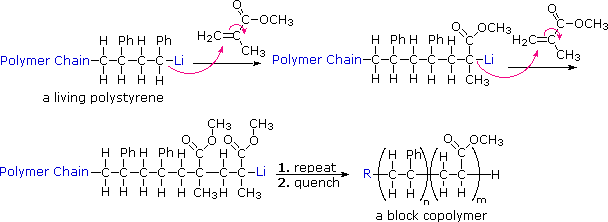Taking Advantage Of the Power of Polymers: Comprehending the Extensive Usages and Favorable Impacts
Polymers, with their varied chemical frameworks and homes, have actually become vital in numerous markets, changing the way we engage with products on a daily basis. As we check out the considerable uses of polymers and their duty in shaping a more lasting, efficient, and innovative future, it comes to be noticeable that their potential is as large as the particles themselves.
Convenience in Everyday Products
One of the most usual usages of polymers is in product packaging products. Furthermore, polymers play an important role in the automotive sector, where they are made use of in producing lightweight parts that boost fuel efficiency.
Furthermore, polymers have found their means into the healthcare field, with applications ranging from medical tools to drug distribution systems. For circumstances, naturally degradable polymers are used in stitches and implants, reducing the threat of unfavorable responses in people (Polymers). In the building and construction market, polymers are integrated into paints, adhesives, and insulation products, improving resilience and power effectiveness. On the whole, the versatility of polymers in daily items highlights their value in driving development and improving top quality of life.
Sustainability in Material Innovations
With the continuous focus on ecological consciousness and resource effectiveness, the emphasis changes towards sustainability in material advancements, mirroring a growing commitment to accountable production techniques across various markets. In current years, there has actually been a remarkable surge in the development of sustainable materials, particularly within the world of polymers. These cutting-edge products are made to minimize environmental impact throughout their entire lifecycle-- from sourcing resources to disposal or recycling.
One considerable element of sustainability in material advancements is the idea of biodegradability. Eco-friendly polymers have gathered interest for their capability to damage down naturally into non-toxic byproducts, decreasing waste and contamination. Furthermore, using recycled polymers originated from post-consumer or post-industrial sources is gaining grip as a way of advertising a circular economic climate and minimizing reliance on virgin materials.

Enhancing Performance in Engineering
Enhancing performance in engineering needs a thorough assimilation of innovative modern technologies and exact methods Recommended Site to enhance performance and efficiency in numerous commercial applications. Polymers play a critical duty in this venture, providing a variety of advantages that enhance the efficiency of design materials and components.
One trick element of enhancing efficiency in design is the ability of polymers to enhance sturdiness and strength. By incorporating polymers right into design layouts, suppliers can create lightweight yet robust frameworks that can withstand high levels of stress and strain. This particular is specifically useful in industries such as aerospace, automobile, and building and construction, where the demand for strong yet light-weight materials is extremely important.
Moreover, polymers can also improve performance by supplying thermal and chemical resistance, decreasing rubbing, and improving electric conductivity. These buildings make polymers optimal for a vast array of engineering applications, including seals, bearings, layers, and electronic parts. Polymers. By utilizing the one-of-a-kind residential or commercial properties of polymers, designers can optimize the performance of their layouts and create extra reliable and dependable items
Influence on Medical Improvements
Polymers have actually played a critical duty in modern medical developments, ranging from drug delivery systems to cells design. One of the vital locations where polymers have actually made a considerable effect is in the advancement of naturally degradable sutures and implants.
Moreover, polymer-based products are progressively being used in clinical tools such as catheters, stents, and prosthetics as a result of their biocompatibility and adaptability. Polymer finishings on medical devices can protect against infections and enhance overall patient end results - Polymers. Furthermore, developments in nanomedicine have made it possible for using polymer nanoparticles for targeted drug distribution, improving the efficacy and decreasing negative effects of various drugs
Role in Environmental Preservation

Moreover, polymers are used in water treatment procedures, aiding in the filtration and recycling of water resources. This assists in reducing water contamination and making certain access to clean water for both human intake and ecological wellness. Polymers also contribute in farming through the advancement of eco-friendly mulches and controlled-release fertilizers, advertising lasting farming practices.
Final Thought
In conclusion, polymers have proven to be a versatile and important material in various industries, from day-to-day items to design and clinical improvements. Comprehending the comprehensive uses of polymers emphasizes their relevance in driving technology and development in several fields.